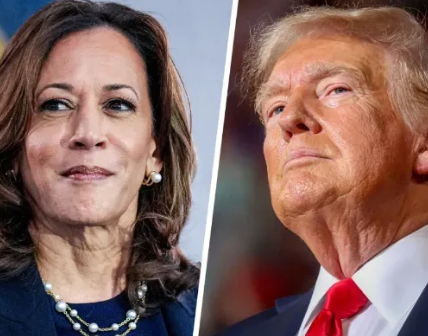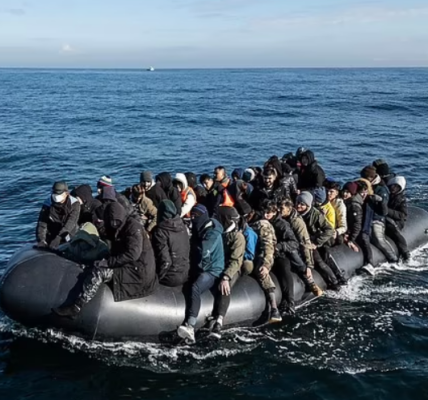Keir Starmer is urged to ‘stand firm’ on demands to pay reparations for slavery but he faces pressure from his own MPs and Commonwealth leaders – as King Charles warns: ‘We must understand the path of history’_Nhy
Sir Keir Starmer was last night urged to ‘stand firm’ on demands to pay reparations for slavery amid fears he could buckle under pressure from Commonwealth leaders and his own MPs.
The Prime Minister arrived at the Commonwealth Summit in Samoa to find a diplomatic storm brewing over the legacy of Britain’s colonial past, with even the King making reference to the ongoing row.
Despite the PM saying the issue was ‘not on the table’, and Chancellor Rachel Reeves ruling out any such payments, Caribbean leaders yesterday stepped up their demands – and suggested Sir Keir would eventually back down.
In an embarrassing blow for the PM, they have already pushed for the Commonwealth Summit communique to call for a ‘meaningful conversation’ about the issue.
A leaked draft of the document says: ‘Heads, noting calls for discussions on reparatory justice with regard to the transatlantic trade in enslaved Africans and chattel enslavement… agreed that the time has come for a meaningful, truthful and respectful conversation towards forging a common future based on equity.’

Sir Keir Starmer was last night urged to ‘stand firm’ on demands to pay reparations for slavery amid fears he could buckle under pressure from Commonwealth leaders and his own MPs

Australia’s Prime Minister Anthony Albanese, left, and British Prime Minister Keir Starmer attend a State Banquet during the Commonwealth Heads of Government Meeting (CHOGM) in Apia, Samoa, on Thursday

British Prime Minister Sir Keir Starmer (C) meets with Paul Schroder (L), chief executive of Australian Super, John Neal, CEO of Lloyds of London and Brian Moynihan (R), CEO of Bank of America, following his arrival to attend the Commonwealth Heads of Government Meeting (CHOGM) in Apia

Prime Minister Sir Keir Starmer with Samoan Prime Minister Afioga Fiame Naomi Mata’afa
British officials were last night trying to water down the language, which looks set to be decided in a showdown between the PM and his Caribbean counterparts tomorrow.
Last night Sir Keir told the BBC that slavery was ‘abhorrent’ but said he was focused on looking ‘forward’, rather than backwards. He added: ‘My posture is that I should be forward-looking, that we should look at what are today’s challenges in this group of countries that are represented here today. We can’t change our history but we should certainly talk about our history.’
Opening the summit last night, King Charles was set to reference the increasingly contentious debate over the legacy of slavery and Britain’s role in it.
The King, who has inherited the role as head of the organisation from his late mother, was due to speak of the ‘importance of recognising and understanding the path of history, and where that may have given rise to contemporary challenges’.
Remarks disclosed ahead of the speech suggested he would say that, thanks to its scale and diversity, representing a third of humanity on the globe, the Commonwealth can ‘discuss the most challenging issues with openness and respect’, and that is ‘never more important than at times of tensions and conflict around the world’.

King Charles and Queen Camilla attend an official Royal ‘Ava ceremonial’ welcome at the National University of Samoa on Thursday in Apia, Samoa. The King’s visit is his first since becoming monarch and the Commonwealth Heads of Government Meeting will be his first as head of the Commonwealth
Downing Street has insisted the PM would not sign up to pay reparations, which some campaigners have put at up to £19 trillion –seven times the annual output of the entire British economy.
Ms Reeves said Britain could not afford demands on that scale and that the country would not pay.
But a Whitehall source indicated Sir Keir would not veto a summit communique referencing the issue.
And, in a sign of a potential climbdown, officials travelling with the PM suggested he was open to discussing ‘non-cash’ forms of so-called ‘reparatory justice’, such as writing off debt.
However, critics reacted angrily to the suggestion of making reparations for the slave trade, which the Royal Navy fought to end.
Former Navy chief Lord West, who served as security minister in the last Labour government, said: ‘Britain should be immensely proud that we lost 10,000 sailors stopping the slave trade. We should be bloody proud.
‘I would encourage the Prime Minister to stand firm on the issue. Perhaps British sailors should be honoured for their contribution to stopping slavery instead.’
Former national security adviser Sir Mark Lyall Grant said it would be a mistake to give ground on the issue – and warned that making an apology could leave the UK open to further financial demands.

King Charles is introduced to dignitaries by Samoa’s Prime Minister Fiame Naomi Mata’afa as he arrives at Apia airport for the Commonwealth Heads of Government Meeting
Sir Mark, a former UK ambassador to the UN, said: ‘It would be quite wrong in principle to pay reparations for something that happened more than 200 years ago.’
But Frederick Mitchell, foreign minister of the Bahamas, urged Sir Keir to take part in a discussion which ‘needs to be had about the history’ around reparations.
He told the BBC that many British institutions – including the Church of England – had ‘already conceded the point of apology’ and urged Sir Keir to follow suit.
Mr Mitchell said the King’s evolving stance on the issue suggested Sir Keir would eventually ‘come round’.
Meanwhile, at home, Labour MPs also called on Sir Keir to make reparations for Britain’s past. Former frontbencher Dawn Butler told MPs: ‘I understand that the Prime Minister has said we need to look to the future – but reparations are the right thing to do.’
Labour’s former deputy leader Harriet Harman said the PM had ‘misunderstood’ why Commonwealth leaders are asking for reparations. She told Sky News: ‘It’s about the relationship between the UK and other Commonwealth countries. And I think that Keir Starmer needs to lean in to a sense of cultural respect and equality.
‘To say “that’s all in the past, let’s look to the future” feels like a misunderstanding.’
The King’s words should not be seen as an intervention in the issue, it was stressed last night. As a constitutional monarch it is not his role to express an opinion on the issue of reparations, and he would be guided by the Government as to whether an apology should be forthcoming.
Buckingham Palace will have known there was a need to at least acknowledge the ‘elephant in the room’ given his audience, without going down the road of reparations directly.
A source told the Mail that the overall theme of his speech was one designed to capture the ‘statesmanlike’ significance of the moment, his debut speech as Head of the Commonwealth, in all its ‘scale and diversity’.
They said the monarch was keen to articulate its ‘purpose’ in the world of today and ‘outline its very many strengths and ways of working together to address some of the most pressing issues of our age’.
They said the King was personally keen to focus on issues such as youth opportunity and climate change, where he felt the Commonwealth could have real impact.



